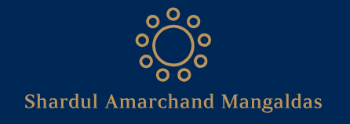On 28 February 2019 the Supreme Court issued its Vivekananda judgment and clarified the legal position regarding allowances that fall within the definition of 'basic wages' under the Employees' Provident Funds and Miscellaneous Provisions Act 1952 (EPF Act) for the purposes of calculating provident fund contributions (for further details please see "Supreme Court rules on whether special allowances constitute basic wages for purposes of PF contributions").(1)
The Supreme Court ruled that special allowances which form part of an employee's wages will be subject to provident fund contributions if:
- the allowances are not variable in nature;
- the allowances are not linked to any incentive for the employee to perform extra work; and
- the allowances are paid across the board to all employees in a particular category.
Pursuant to the Vivekananda judgment, on 20 March 2019 the Employees' Provident Fund Organisation (EPFO) issued a circular advising the provident fund authorities to investigate any misconduct by employers. The Vivekananda judgment and the EPFO circular prompted the authorities to issue inquiry notices requiring companies to produce records for a period ranging from three to five years so that they could evaluate wage structures and determine any shortfalls in contributions.
Given the widespread ramifications of these inquiry notices, industry bodies (eg, the Confederation of Indian Industry) made representations to the provident fund authorities. On 28 August 2019 the EPFO issued a circular directing the provident fund authorities not to initiate inquiries or investigations into employers' previous wage structures on the assumption that certain allowances might not have been treated by employers as basic wages for the purposes of provident fund contributions. The EPFO circular also directed all investigations and inspections to be carried out only with prior permission from the Central Analysis Intelligence Unit and in accordance with the relevant administrative guidelines and policies. Further, the circular permits investigations to be carried out only where there is a credible basis for believing that an employer has prima facie indulged in the illegal practice of avoiding provident fund liability by splitting basic wages.
The provident fund authorities have also been directed not to pursue notices which were issued without prima facie evidence of arbitrary wage splitting with the aim of avoiding provident fund liability. Where any such action is initiated, the concerned officer will face administrative action. The EPFO circular also provided that no coercive action for recovery would be taken where any proceedings under Section 7A of the EPF Act have already been commenced pending the disposal of the review petition filed against the Vivekananda judgment. However, on 28 August 2019 the Supreme Court dismissed the review petition.
The EPF Act does not provide a limitation period. By way of a 30 November 2012 circular, the EPFO attempted to limit the look-back period for investigations and inquiries into past non-compliance to seven years. Given that the EPF Act is a social welfare law, this circular was held in abeyance until a further order of 18 December 2012. There have been no further circulars in relation to the limitation period for inquiries. Therefore, at present, there is no limit to the number of years which can be subject to an investigation into past defaults by the provident fund authorities. Judicial precedents and other internal circulars of the EPFO also suggest that the EPFO could ascertain the liability regarding provident fund contributions for past defaults without limitation. However, a proposed amendment to the EPF Act would introduce a five-year limitation period. This indicates that the legislature aims to introduce a limitation period to provide respite to employers. Until such time, the EPFO's recent clarification is a welcome measure and will provide some relief to employers.
Endnotes
(1) Regional Provident Fund Commissioner (II) West Bengal v Vivekananda Vidyamandir (2019 LLR 339 (SC) (the Vivekananda judgment).
This article was first published by the International Law Office, a premium online legal update service for major companies and law firms worldwide. Register for a free subscription.






